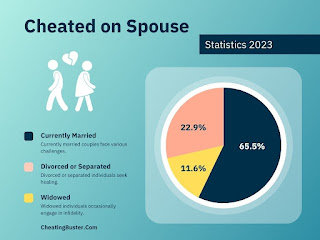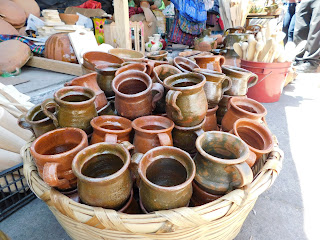why honey is not vegan
If you're looking to cut down on your consumption of animal products or have done so already (shoutout to all the new flexitarians and reducetarians out there!), we feel compelled to tell you that honey isn't technically vegan.
That's right, the sweet and sticky stuff you add to a cup of tea or use to glaze some carrots is considered to be an animal product (and therefore not vegan-friendly or plant-based) because it's produced by bees. Additionally, honey is actually food for bees, and acts as a primary source of necessary carbohydrates, amino acids, antioxidants, and natural antibiotics for the buzzing insects.
RELATED: 3 Raw Honey Health Benefits
While drizzling some honey on your morning oatmeal or using it to sweeten a smoothie isn't quite the same as biting into a juicy burger, many plant-based eaters choose to avoid honey because of how it is produced, particularly on commercial bee farms.
How Do Bees Make Honey?Bees start the honey production process by gathering nectar from flowers and then storing the sugary substance in their honey stomachs, which is different than the stomach they use for food. When a bee's honey stomach is full, it returns to the hive and uses its mouth to pass all that nectar to other worker bees. Those worker bees then chew it and pass it from bee to bee until it gradually becomes honey.
Once the honey is created, the bees store it in special honeycomb cells within the hive. To fully dry the honey and make it even stickier, the bees fan it with their wings. In the final step of the honey-making process, bees seal each honeycomb cell with a wax lid in order to keep it clean. Bees then consume this stored honey during the winter, when the substance is much more difficult to produce. The stored honey gives them nutrients and energy, and helps them survive until spring, at which point they can regularly make honey again.
RELATED: Does Honey Have Any Actual Health Benefits? We Asked an RD
Story continues
This process often looks very different on bee farms, which is why many vegans opt not to include honey in their diets. Some (though not all) beekeepers who produce honey clip the queen bee's wings so she won't flee the hive and take the colony with her. Others may even collect the honey from the hives and then replace it with other sugary substances (such as high-fructose corn syrup) that, unlike honey, don't provide bees with the nutrients they need to survive and reproduce.
According to a 2014 study, honey boasts nutritional components for bees that they don't receive from high-fructose corn syrup and similar substances. This, in turn, can have a negative impact on the bees' immune systems and reduce their defenses against pesticides, which can damage the entire hive.
Vegan Honey AlternativesWhether you're considering a vegan diet or simply want to cut back on the number of animal products you consume, there are plenty of animal-free alternatives to honey to consider. Believe it or not, these plant-based options can sweeten a salad dressing or top a yogurt parfait just as well as the real thing!
Maple syrupThough not quite as viscous as honey, maple syrup, which is made from boiled maple tree sap, is a great honey substitute in no-bake recipes. It can also be used to sweeten granola, salad dressings, smoothies, and sauces, and can be used in a 1:1 ratio in honey's place. Pro tip: The darker the maple syrup you use, the richer the taste will be.
RELATED: The Difference Between Real and Fake Maple Syrup
MolassesThough maple syrup and molasses look similar, they actually have very different tastes. That's because, unlike maple syrup, molasses is made from sugar cane and boasts a flavor that isn't quite as sweet as the popular pancake topper. However, like maple syrup, molasses can often be used as a honey substitute in recipes for baked goods—just make sure you buy the light or dark stuff and stay away from blackstrap molasses, which can overpower other flavors.
Date syrup and date pasteDate syrup is made by heating dates in water, blending them, and straining the resulting mixture. It's a common ingredient in Middle Eastern cooking and, like many other options on this list, can be used to add some sweetness to baked goods. In Israeli cuisine, date syrup is also often used to flavor savory dishes, such as chicken or lamb.
Date paste, which is thicker than date syrup, is a tad more versatile and can be used much like jam. Use it instead of honey when making baked goods, salad dressings or smoothies, or pair it with some cheese the next time you prepare a charcuterie or cheese board.
RELATED: 7 Essential Tips for Making the Best Charcuterie Board
Agave nectarYou might already have this ingredient on your bar cart, as it's commonly used to sweeten cocktails, but agave nectar has plenty of other uses too. For example, the sweetener, which typically comes from the blue agave plant, works well as a honey substitute in hot or iced tea, baked goods, and even ice pops. You can also use dark agave nectar to top oatmeal and French toast.
What's more? Agave nectar has a lower glycemic index than regular sugar and honey, which makes it a great alternative sweetener for diabetics.
Coconut nectarCoconut nectar is a popular honey replacement because it boasts a similar consistency to honey, which also means it can be used at a 1:1 ratio. The plant-based sweetener, which is sap from the flowers of the coconut tree, also has a naturally sweet and mild flavor, which makes it very versatile. Use it to sweeten smoothies, salad dressings, desserts, and even your morning cup of coffee, or drizzle it on top of pancakes and toast.



Comments
Post a Comment